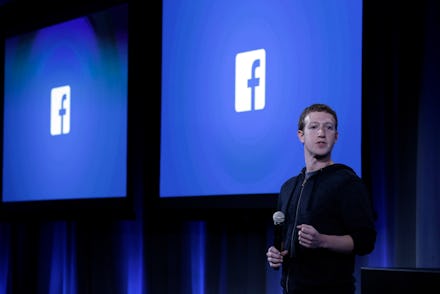How Facebook Could Kill Viral Content As We Know It

The news: Tired of GIF-lists and hyperbolistic headlines from click bait sites? Facebook might have some respite for you. Its engineers are working to "improve" its mobile News Feed, which will now be geared to feature smarter, better content gathered from your social network instead of "meme photos" and, as The Verge predicts, "ostensibly other over-shared links that aren't as informative."
What kind of content is Facebook looking to promote? Their sample image was an article from The Atlantic, discussing the Dec. 1 deadline for fixes to the HealthCare.gov website. Here's what their suggested posts will look like:
Facebook doesn't indicate it's going to be dropping anything from the site entirely, and doesn't really go into detail about what kinds of content they're looking to prioritize and which to hide further down into your personal newsfeed. But the announcement comes at exactly the same time that companies like Upworthy, Viral Nova, and BuzzFeed are peaking in traffic and invading users' social media profiles at an unprecedented rate. (BuzzFeed just came in at a record 130M+ unique visitors in the month of November, mostly via their characteristic GIF-heavy list posts). These sites tend to be lighter on news and analysis and heavier on multimedia and attention-grabbing headlines, and it's unclear whether Facebook is targeting them with the new move.
As the Washington Post's Ezra Klein observes, "This gets to the downside of writing content designed to go viral on Facebook: You're at the mercy of Facebook's engineers."
Why the change? Facebook is aging, and they're about to wage war with up-and-coming apps like Snapchat (which has a massive youth userbase) for traffic, and they're already competing with Twitter for legitimacy as a news source, particularly on mobile.
Twitter is simple: You post a link, and it shows up on everyone's feed. The 140-character limit encourages users to stick to basics when posting and there's notably less thorough engagement. Facebook, on the other hand, is a black hole. It's impossible to know what exactly goes into their algorithm for prioritizing content or even whether it's the same for each user or demographic. Where Twitter is a simple feed, Facebook has massive power over what users see and when.
That has led to a problem: sensationalist content which annoys users and clogs up news feeds. And because that viral content is stacked towards having an emotional punch and being quick and easy to generate, a lot of it is pretty weak. As Klein puts it, citing the headline "She Had To Leave Her Dying Baby’s Side. When You See Why, Your Heart Will Break."
"... There's so much more viral content being launched and so much more competition to one-up the last viral headline that the emotional pitch of the news feed has been cranked to 11. And the easiest answer, for individuals, is often to just hit "like" and move on ... But hitting 'like' isn't the same thing as actually enjoying the content. And collectively, everyone "liking" and sharing this stuff to show that they love babies and believe in gay marriage and oppose bullying ... could mean news feeds fill with content that users don't actually want to see so much of."
This is a big problem for Facebook, because they need users to actually enjoy their experience on the site, or they won't keep coming back. It also makes it difficult for Facebook to compete with Twitter for news, because it's much easier for users to tailor their feeds to their tastes due to the simple, transparent way Twitter generates its feed.
But since Facebook has total control over what shows up and when, they can simply fix the problem by tweaking the algorithm to scale certain kinds of posts back — and then the big problem becomes one for content producers.
But don't freak out yet, viral sites. It's unclear that they're the target of these changes as opposed to sites like memebase.com or even imgur. But even if they are, it's not necessarily a huge problem.
Most of these sites realize the limits of simple formats like lists and image- or GIF- heavy posts, and the smart ones are diversifying their content to make sure their brands aren't too dependent on flavor-of-the-year formats and styles which could quickly dry up. Take BuzzFeed Politics, for example, which mixes the quirky humor of its traditional content with serious, reporter-based coverage of political trends and major news events. These are extensions of the brand which are designed to be durable and lasting.
And Facebook obviously won't kill viral content entirely — more likely, they're going to use the sophisticated tools at their disposal to track and monitor viral posts to see which ones users actually engage with, and isolate the rest.
And working under fluid conditions is nothing new for online content producers. No one knows quite how Google search works, either.